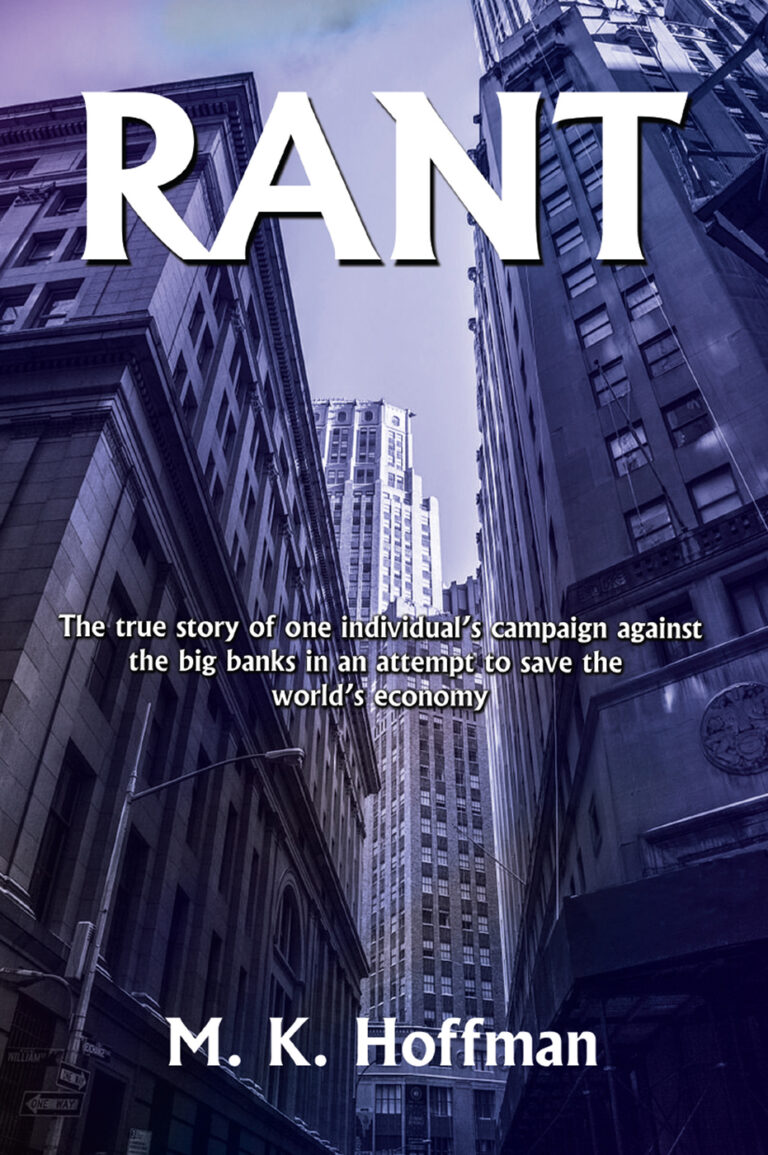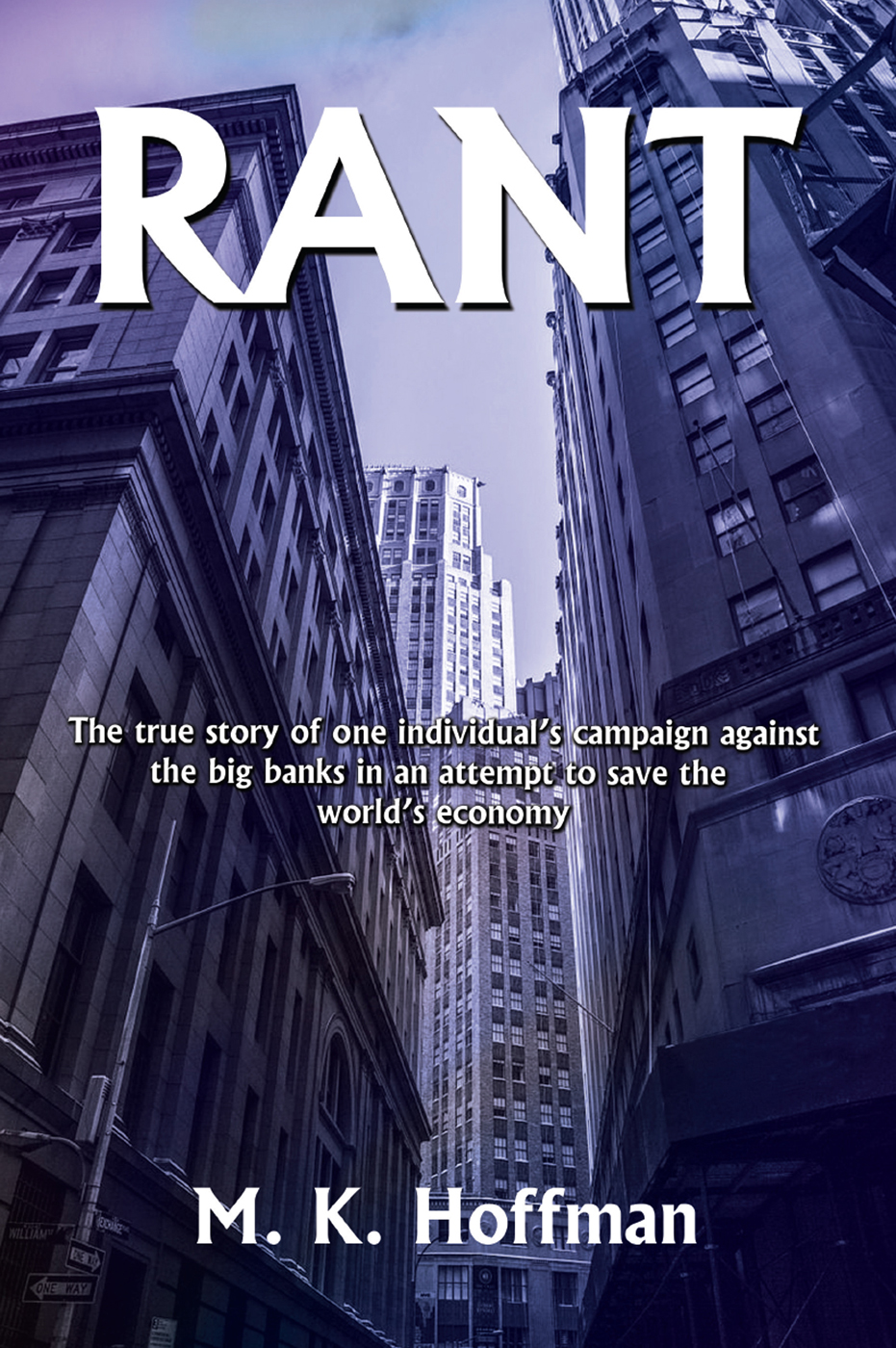M.K. Hoffman’s memoir, RANT, is an exposé of the smorgasbord of corruption, cowardice, and self-interest that he encountered in his relentless pursuit of the truth – the truth about the real source of the economic downturn that superseded Hurricane Katrina. Vietnam veteran Hoffman begins his narrative with an account of the immediate aftermath of the catastrophe. Going to fill his car with fuel, he is shocked to find that gas prices have increased – doubled, in fact. When, three months later, oil prices increased even further, this was blamed on demand from India and China. Such a simplistic explanation raises questions for the increasingly skeptical Hoffman: What really lies behind the price spike? And whom does it benefit?
For Hoffman, connecting the dots is easy. Rising fuel prices would have a significant impact on the cost of living and dramatically affect the average American family. When household expenditure on fuel increases, it logically follows that disposable income shrinks and other household spending decreases. Hoffman reveals that at one point his monthly heating costs rose from $150 to an extortionate $650; as a limo driver and salesman, Hoffman himself is not impervious to the hardships wrought by spiraling fuel costs. The impact of high oil prices would clearly hit the public hard and reverberate throughout all sectors of the economy. And yet the financial experts and big banks seemed reluctant to acknowledge this fundamental truth. Hoffman was beginning to witness the manifestation of Voltaire’s assertion that “common sense is not all that common”. And so, Hoffman’s campaign against the disingenuousness of the corporate world began in earnest.
Hoffman’s role as a limo driver affords him many opportunities to speak to the great and the good in the world of finance. Before long, however, it becomes clear that none of the experts are prepared to admit any connection between oil prices and recession. To Hoffman, the united front of the financial community must have seemed one large-scale conspiracy. As fury mounts, he describes the situation as a “rigged version of Monopoly with the world”. Attending a lecture given by one of his limo passengers, a Dr Mason, the expert describes the impact of oil prices as “negligible” on the economy, and ignores Hoffman’s raised hand in the audience. Telephone calls to officialdom are met with bureaucratic indifference or an interminable round of pass-the-buck resembling Dickens’ “circumlocution office”. Such a succession of sustained setbacks would cause many to simply abandon their pursuit. Hoffman, however, realizes that this is exactly why the financial giants get away with such scrofulous conduct.
What is striking about Hoffman is his unwavering commitment to his cause. Despite facing obstacles – and sometimes downright hostility – his drive to ‘save’ the world economy is unquestionable. This is someone who is prepared to explore any avenue in his quest to be heard and understood. Repeated rejections and frustrations are met with resilience. If anything, the scale of corporate corruption and its in-built defense mechanisms serve only to impel him further. At times, his anger and sense of injustice are almost palpable. Is his quest for truth naïve? To some degree, perhaps – but his sense of righteousness in a world of wrong-doing is also rather comforting.
Despite the liberal inclusion of financial detail – which some could find off-putting – RANT is an insightful read for anyone who enjoys a David versus Goliath tale or seeks to better understand the world in which they live.
~Amanda Ellison for IndieReader


